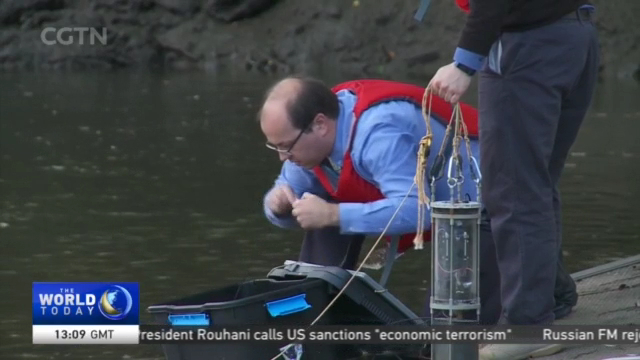
21:53, 08-Dec-2018
Water is Life: New technology in UK might help avert global water insecurity
Updated
21:18, 11-Dec-2018
02:45

A new United Nations report is warning that over the next decade, more than 700-million people could be forced from their homes by a lack of clean drinking water. The report was released in Poland, at the 24th meeting of the signatories of the UN Convention on Climate Change. Our Richard Bestic visited a lab in the UK that has developed technology that could help manage the world's limited water supplies.
Around the world, water supplies are under pressure. According to the UN report, Making Every Drop Count, more than two billion people globally are compelled to drink unsafe water. In this university lab on Britain's South Coast they've produced a sensor device that could help, uploading a continuous file of data to the Cloud for instant examination.
PROF. XIZE NIU SOUTHAMPTON UNIVERSITY "We can see this new device will be used in monitoring in many applications. For example, we can monitor in a lake, in drinking water reservoirs so that we can assure that the water quality level is right."
Until now, pollution monitors have been huge, the data collected and returned for tests by teams of experts in a time-consuming process. Smaller and cheaper than current methods, this new sensor is brought to the water and the information – after its dropped in - available online instantly.
RICHARD BESTIC ENGLAND "The research team here at Southampton University are claiming this device is disruptive technology, that it can do in one day what it takes the usual method of measuring water quality one year to achieve."
The science behind it has involved the development of an extraordinary level of miniaturization, so-called Nano-droplet microfluidic sensors. In what is a multi-billion dollar industry, it makes claims for slashing the costs of monitoring water, with an environmental perk.
DR. OLIVER HOFMANN CEO, SOUTHWESTSENSOR "Water is already a very precious resource and with global warming it'll only become more precious. And we offer a tool that allows you to protect the precious water by monitoring for key pollutants and, in our case, doing it in a much more efficient way than is currently done."
An argument from this research lab that will echo across Cop24, where at least one call is to 'make every drop count'. RB CGTN Southampton University, England.

SITEMAP
Copyright © 2018 CGTN. Beijing ICP prepared NO.16065310-3
Copyright © 2018 CGTN. Beijing ICP prepared NO.16065310-3